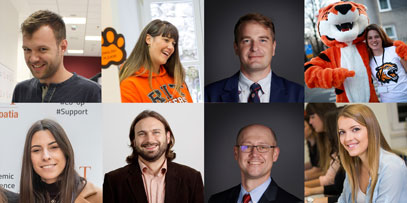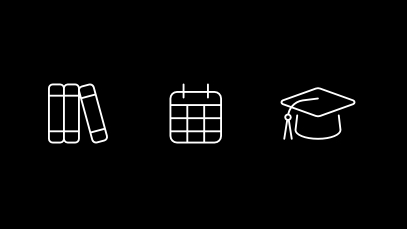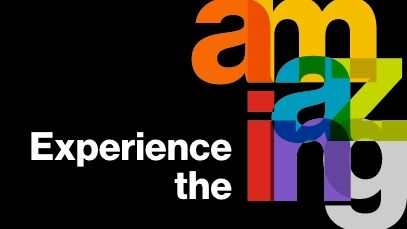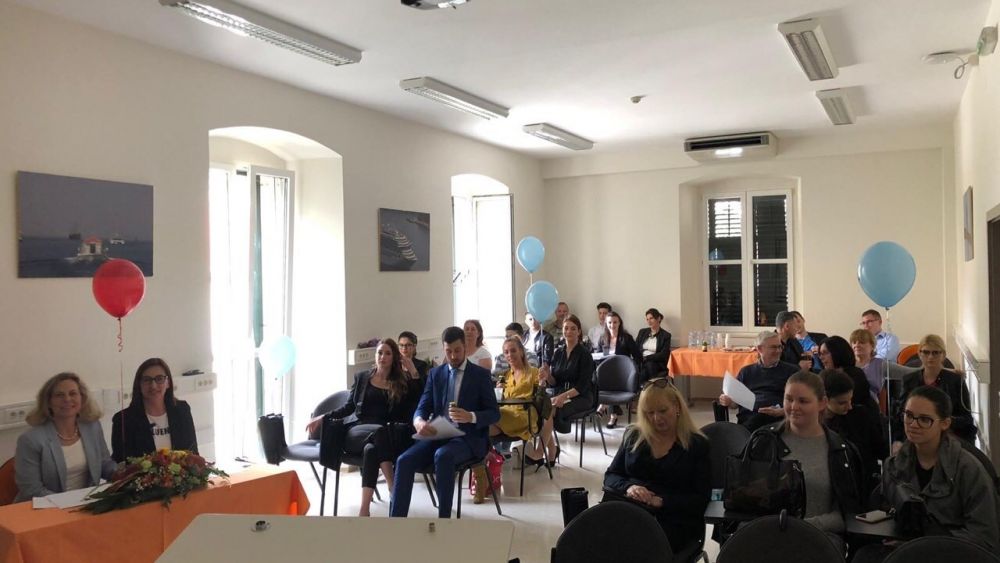Solving problems and improving services
Solving problems and improving services
GRADUATING SENIORS PRESENT ORIGINAL RESEARCH IN HOSPITALITY, TOURISM AND BUSINESS
May 15, 2019
Open up any newspaper or web portal and you'll probably see news about something going wrong. Something does not work the way it should. Something else is hopelessly late. Something else is much too slow, much too crowded, much too big or simply not there at all. And everyone loves to complain.
But there are some people out there looking for solutions, without yelling, or crying, or blaming, or giving up. Instead, they are conducting research.
As the final step before graduating from RIT Croatia, senior students in the Hospitality and Tourism Management program spent their final semester becoming researchers, investigating real world issues and problems - from restaurant lighting design to video game streaming, to the impact of artificial intelligence on education and hotel jobs of the future - and looking for solutions.
In the capstone research project (završni rad), students investigate a current issue or problem that is of particular interest to them. They start by building on their current knowledge, reading and studying experts in the field. Then each student collects original data, by conducting surveys or experiments, live observations, or online data analysis. In the end, students offer solutions to current problems, and suggestions for improvements that could benefit local businesses, or even help these students start their own businesses after graduation.
"Students came up with a fascinating variety of interesting topics, directly related to current trends and problems in hospitality and business," said Prof. Rebecca Charry Roje, senior project course instructor. "This capstone course helped them identify a real situation or problem, and become knowledgeable about the current professional theories and concepts behind it. The most exciting and challenging part of the project was collecting original data from people and businesses around them.
This year, students conducted interviews, made site visits, even spied on people using their smart phones while drinking coffee, or posed as mystery shoppers in Dubrovnik souvenir shops. They read through hundreds of reviews on Trip Advisor, collected conversations between hosts and guests on Airbnb, and followed the Twitter accounts of some of Dubrovnik's leading hotels.
"Sometimes students get frustrated or worried when their research doesn't go the way they expected, but that's actually the way real research works. Encountering obstacles, surprises and delays along the way is all a normal part of the process.
Dealing with those obstacles is actually where some of the most important learning takes place. And of course, when we look at history, some of the most important scientific findings are the ones that were least expected."
Throughout the research process, students work closely with a faculty mentor, who guides them through the research process, offering crucial feedback, support and advice.
"The most successful projects are usually the ones that also involve a positive working relationship between the student and the mentor," said Prof. Charry. "At this stage in their studies, it's no longer about the professor telling the student what to do, but rather working together with the student in the lead role."
At the end of the course, students present their findings in a formal research paper as well as an educational 15-minute TED Talk-style presentation, which is open to all RIT Croatia students, faculty, staff, alumni and friends and family members.
"The final presentations always make me proud," said Prof. Charry. "It's wonderful to see our students up there in front of an audience, speaking confidently, with knowledge and insight into their topics, and presenting their work in creative ways that helped their audience better understand the world we are living in."
Recommended News
-
November 15, 2024
-
November 5, 2024
-
October 31, 2024
-
October 30, 2024











